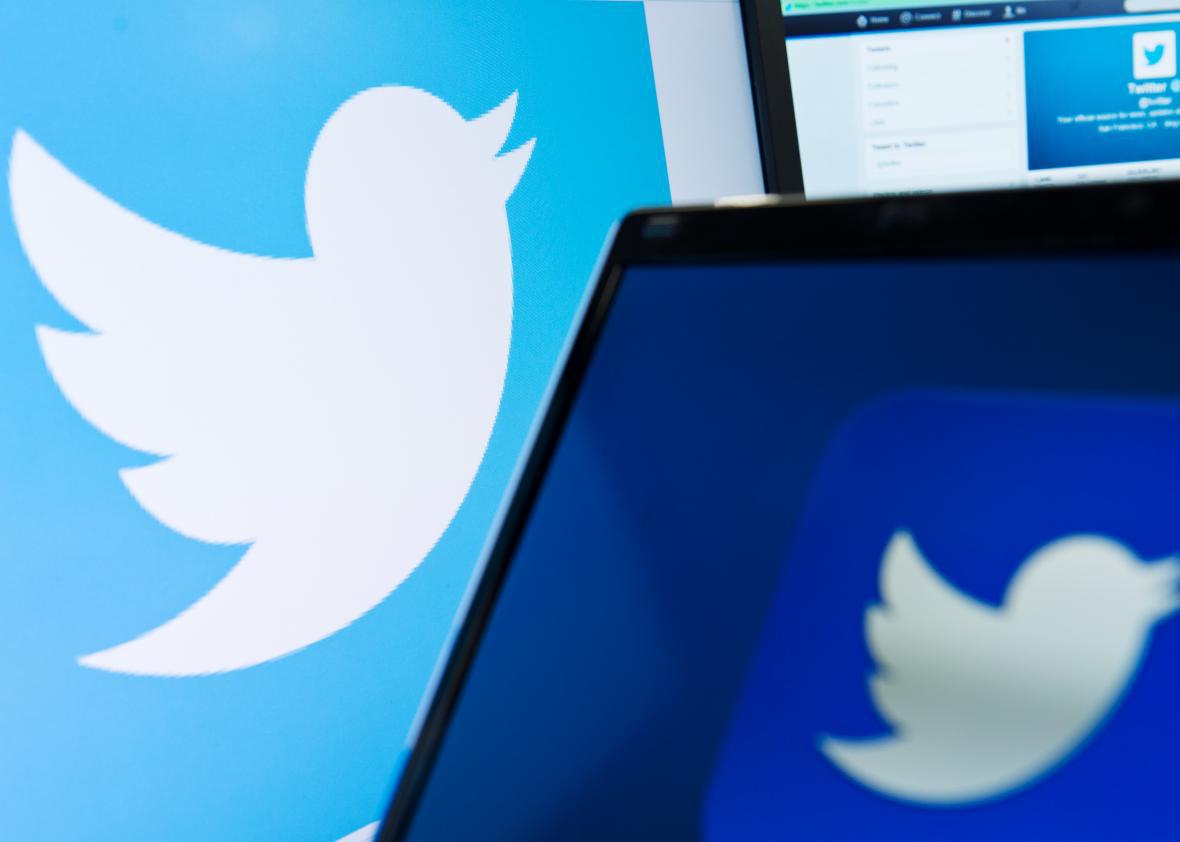Most Internet hoaxes have little or no significant impact, but once in a while we see the potential for more serious trouble. That was the case Tuesday, when someone posted a fraudulent “news story” about a likely sale of Twitter, leading to a brief upward bump in the company’s share price and a blizzard of online tut-tutting about the hoax.
Twitter’s share price rose about 8 percent before dropping back to the level where it had been trading, so it’s likely that some rapid-fire traders lost money during the day. And it’s even more likely, though there’s no proof yet, that whoever was behind the hoax made some money—at least until SEC investigators track him or her down, assuming they do.
I can’t dredge up too much sympathy for anyone who lost money on this one. Even a slightly alert serious investor reading the story, posted to a site purporting to be part of the Bloomberg media empire, should have noticed that the name of the recently departed Twitter CEO, Dick Costolo, was badly misspelled—among other tipoffs that the article was bogus. (The site has been taken down, but you can see a screenshot here.)
My own Twitter feed had some chatter for a few minutes about the situation, but the people I follow seemed mostly to do a collective shrug. These things happen seemed to be the prevalent response.
They do, and they have been for awhile. Sometimes it’s a fake press release. Sometimes it’s a fake news story. (Assuming there’s a difference, cough …)
You might recall the bogus news in 2008, posted to CNN’s “iReport,” that Steve Jobs had a heart attack and died. He hadn’t, at least not at that time. (He died in 2011.) And when several otherwise reputable news sites and bloggers passed it along—couching their reports by saying it hadn’t been verified—Apple’s share price took a hit, recovering almost immediately. It may have been a prank, not a fraud; either way, as far as I can tell, whoever created that hoax was never found or prosecuted. But undoubtedly some people lost money.
So when these kinds of hoaxes and/or bad reporting occur, we have to reapply basic principles of what’s called media literacy. When it comes to breaking news, we have to a) be relentlessly skeptical of what we read, hear, watch, etc.; b) use judgment, by not being equally skeptical of everything; and c) wait for evidence. We have to employ what my friend Howard Rheingold, a writer and educator, calls “crap-detection” strategies. (These principles and strategies, and more, are part of my free online course on media/news literacy, which is running now. If you’re interested you can still join us. Note: Arizona State University, where I teach, is a partner with Slate and New America in Future Tense.)
Crap detection helped a lot in the Bloomberg hoax, due to the amateurish grammar and bad spelling. But there was another clue, too: The page, though dressed up to look legitimate, was hosted at the Internet domain “bloomberg.market” instead of the legitimate Bloomberg.com. Journalists quickly checked the domain records and discovered the site’s history was, at best, sketchy.
Unfortunately, thanks to a terrible new policy from the reckless and autocratic Internet Corporation for Assigned Names and Numbers—the organization that handles the domain-name system—we’re probably going to see a lot more of this kind of thing. ICANN drastically expanded the number of “top level domains” that can be used. Now, in addition to .com, .net., .org, .uk, .cn, and the like, there’s a host of new ones including .market and many more. The domain name system had lots of problems, but this “improvement” made things much, much worse—especially for brands that now worry they’ll have to buy all kinds of new names just to protect themselves from sleazeballs like whoever pulled off the Bloomberg Twitter hoax. (And never mind the genuinely scandalous “dot-sucks” situation, where the exclusive registrar is charging outrageous fees to companies.) ICANN obviously doesn’t want frauds of this kind to happen, but its action has plainly helped enable the bad actors.
Even if ICANN had been more responsible, fakery would still happen; it was going on before the domain-name expansion, after all. Which means we all have to pay more attention, all the time, and take nothing immediately at face value.
One of these days, someone is going to hack a major, trusted news organization’s actual site and post sensational but bogus news that looks and sounds as though it may be legitimate. Let’s hope it doesn’t start a panic, financial or otherwise. Skepticism and judgment will be our best defenses. We all need to work on them.
